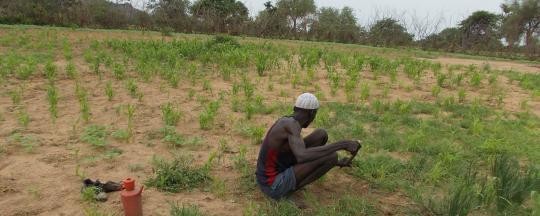The Minister of Agriculture of Upper Nile is asking the national government and companies to invest in the state’s agricultural sector this year, which according to him was allocated “meager resources” over the last period.
Minister Deng Ajot Bol affirmed that logistical problems and lack of funding have contributed to the partial failure of the sector:
“The cultivation season in Upper Nile was 60 percent successful this year. This is due to late delivery of seeds, and tractors, for example,” the Minister said. He added that lack of funding has affected areas designated for cultivation by the State Ministry of Agriculture, prepared in accordance to the policy framework drawn by the state government.
“For instance in 2012-2013, according our strategic plan in the state, we intended on cultivating about 20,750 acres of land across nine counties. However, lack of resources did not allow us to implement the policy accordingly,” Bol continued.
The Minister alleged that even though the president instructed that funding be earmarked for the agricultural sector of the ten South Sudanese states, Upper Nile did not receive any support from the central government.
“I personally went to the Agricultural Bank in Juba and I was given tractors, but the challenge that faced me was the transportation of tractors to Upper Nile state” he explained.
Bol confirmed that last year’s austerity measures, adopted after the oil shutdown, affected the state, specifically the agricultural sector. According to the Minister, Upper Nile used to generate revenues which were remitted to the public treasury.
Minister Bol commended “self-efforts” by farmers, who contributed to the partial success of this season despite the logistical challenges in the country. “The farmers need financial support, especially before the harvest begins,” he added.
The Minister called upon the national and state governments to allocate enough funds to revive the agricultural sector of South Sudan and “match it with the policy announced by President Salva Kiir”.
He also invited companies to specifically invest in sesame, sorghum, and African gum, so that these products are no longer “smuggled across borders”, noting the latter is abundant in Upper Nile.




